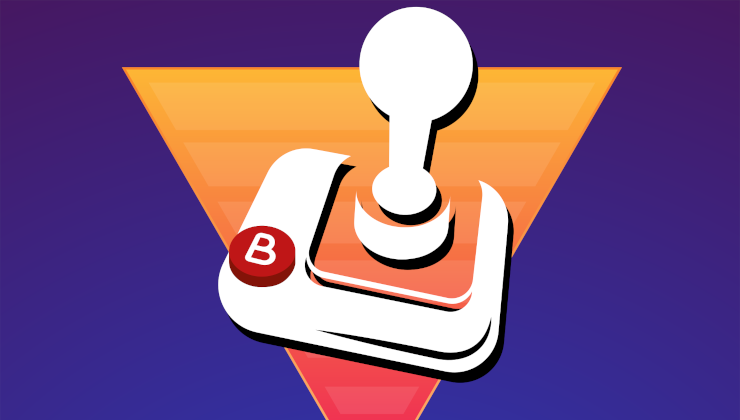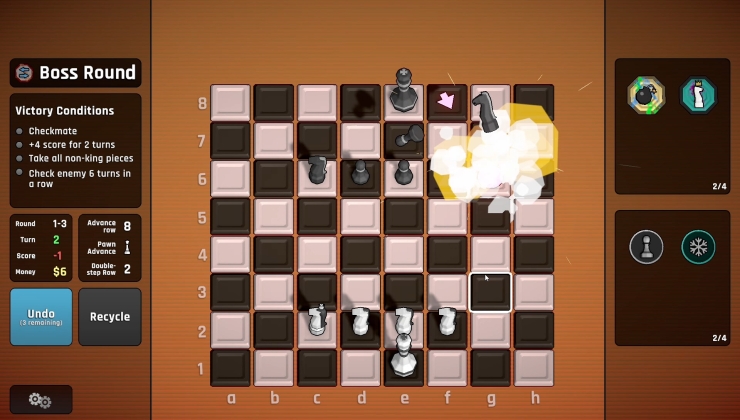Doing the rounds right now is a post from Valve's Steam support (thanks Ars), when a user asked about what would happen to their Steam account when they died and it's not great news for anyone hoping to pass on your Steam account.
This comes from a post on Resetera, where the user asked if a Steam account could be transferred via a will. The Steam support staff member replied to note very clearly Steam accounts are plain and simply "non-transferable".
It's not exactly something new, or surprising, given that Steam's Subscriber Agreement clearly notes "You may not reveal, share or otherwise allow others to use your password or Account except as otherwise specifically authorized by Valve.".
Still, nothing actually technically stops you just writing down your details for someone and leaving it in a safe space, it's not like Valve actually go and confirm your identity. You also have the newer Family Sharing system, so someone could quickly go in and share it to your personal account and get most of the games.
It's also another reminder that on Steam, you don't own any games on it at all. Once again, as per the Subscriber Agreement, "Content and Services are licensed, not sold" and your "license confers no title or ownership in the Content and Services".
This will be the same across nearly all web stores that offer digital products you "buy", they're not yours. Epic Games Store is exactly the same as per their EULA which notes "All rights granted to you under this Agreement are granted by express license only and not by sale". Ubisoft are exactly the same in their terms as well noting "we grant you a non-exclusive, non-transferable, non-sublicensed, non-commercial and personal license". Think GOG are any better? They're not, as per GOG's agreement "Your GOG account and GOG content are personal to you and cannot be shared with, sold, gifted or transferred to anyone else." and they make it clear multiple times you get a license again, not ownership of anything sold.
If you go through most other places, they all use similar language and we're not talking just game stores here but anywhere you digitally purchase movies, TV series and so on. You get the idea. You might be buying the item, but you have no ownernship at all.
Really, the only time this will change is when physical media properly dies off and people cause enough of a fuss that governments and legal bodies around the world put in new laws around digital ownership, which is not likely for a long time.
So, you probably should go and clear that backlog of games you've built up.
I have a feeling they cannot prohibit this in Sweden... but I have another solution, just live forever. Simple un-death hax.
Just a simple iddqd, huh? That's cheating, though, I don't wanna be a cheater...
The Steam support staff member replied
In the past, Steam support has answered things differently depending on which rep you get. Has this actually been confirmed with Steam in other ways, or are all the sources "Steam support said." ?
If you were concerned about maintaining the legal right to transfer your Steam account, you should not have made a Steam account, simple as. Sharing your games with someone is not rendered impossible by this because many Steam games do not have any DRM, some of those without DRM don't even tie into Steam at all, and DRM will be brokenーas for the sharing of the account itself I can't imagine why you would want to do that for any practical reason when you can just trade all of your items off anyway. Sentimental value is the only real justification, and Valve probably isn't going to accuse you of stealing an account because your deceased friend gave it to you as a memento.
TL:DR; this is not a big deal whatsoever. Go home
Hold on, I'm being told that publishers say the rules don't apply to them.
My mental state being where it's been the past several years. It's crossed my mind on what I'm gonna do with my game stuff, and it's either going to friends or for my sister to sell. Physical or account passwords. I don't know what my future holds, like everyone else. But whether it be here, going to the West Bank and joining the PFLP in the PLO, going to Kurdistan to join the PKK, or going to Chiapas state in southern Mexico to join the Zapatistas. I already know who's getting what. lol
So, you probably should go and clear that backlog of games you've built up.Yep, this June i get 45y old and I've categorised my games recently to get through my pile of shame.
!game categories
Wouldn't you just use steam family sharing and pass it down that way.This is mentioned in the article. But, that would require someone to share before they die. And whoever wants the account passed on may not have it shared, that doesn't really solve the issue at hand, and not all games are available via family sharing.
They can't login to the account but most of your library is still kind of passed on ?
Part of me has a feeling that this entire subject is a legal quagmire as a whole. Under the law in many places, ownership is shared by a married couple and that cannot be taken away by some license agreement. But also, Valve likely has their own legal quagmire to deal with as it relates to selling license keys to other developers' software. As in, Valve likely doesn't have the legal power to transfer licenses to another person after death. This is something that would likely have to be resolved in court..... ESPECIALLY if the deceased was a spouse and passing ownership of account to said spouse may not be something that can be legally avoided.
What is the difference in owning CD containing a game and not owning a game downloaded from GOG?
It is just the I cannot sell/gift it?
I've seen the criticism about GoG before, but I never got it. They're selling you the game, and once you download it, it's yours, truly. [...] If we want to be unnecessarily specific and explicit: yes, digital is never going to be as good as physical, but with GoG I think we're almost there, it depends on how much you really care about EULAs and whatever other crap designed specifically to fuck you over and protect their bottom line.Agree. It's one point why I prefer GOG over Steam. Though lately I've been a bit lazy to download every game (not to mention every updated version), and if I would, I think I'd run out of space before even half of my current library.
So in the end, it's probably easiest even in GOG's case to just pass down the account credentials (or just the master password to the password safe).
As for GOG vs. physical media: when it comes to inheritance, I don't think physical media is ideal either. Would any potential heir really be able to still read or use my Amiga floppies? Or some CD-ROMs with DOS games? Or that disc with Civilization: Call to Power for Linux? Would they even care for that stuff or just throw it in the trash unseen? With GOG, at least there's the chance the games might still work, though who knows if that's still true in 20 or 40 years?
Though hopefully, it's still a bit early to worry overly much about all that. And if not, well, at least I won't have to worry about it!
I am pretty sure people are still wondering why piracy will never die as they continue to treat paying customers like criminals (piracy reminders everywhere, DRM, locked platforms, mandatory online connections, etc.)Way back when, I had a friend that I repeatedly told him where and how to use the no-cd cracks... but he could never get it through his head. The funny thing is, these things are required now for a vast majority of games made during a certain period of time, because SafeDisc has been been purposefully broken on newer versions of Windows.
I still remember using no-cd cracks on my purchased games 25 years ago to avoid putting a CD-ROM into a player that would make as much noise as an airplane during take-off…
Hilariously, these games still work just fine in Linux/Wine.
When you buy a game, the publisher can't recognise 100% of the sale price as revenue straight away. They have to leave some part of the sale price for amortising the future cost of supporting the game - servers making downloads available in the future, developers fixing incompatibilities with OS upgrades, developing new features if a game ships with a roadmap and the publisher honestly wants to deliver it. You should only recognise the revenue proportionally to the remaining cost of the game. This means you should aim to only recognise the full revenue when the game requires no further support.
You can be a terrible company and cancel support soon, or you can give it a reasonable period. Steam allows you to download a game as long as possible("lifetime"), but this gives them amortization periods of up to 100 years! If you could inherit a Steam account, the period could potentially be infinite. That's why they're saying the game on device is yours to play with, but they don't want to make any commitments about making it available for download to your successors.
Secondly, with the exception of first party games, it's not Valve's decision. They can't change the rules for games that have already been published. They could change the rules for games released in the future, but this would result in publisher pushback.
Last edited by Pikolo on 30 May 2024 at 1:12 pm UTC
Go homeGood advice. I didn't want to come to work today anyway.
What if you work from home???.......Go homeGood advice. I didn't want to come to work today anyway.
I wonder if Valve will setup a expected death of account owner timer. So once you turn 80yo they consider you dead and invalidate your entire library, lol. That would be dystopian but I suspect in 40years time we will all have MUCH more pressing issues to deal with other then computer stuff.Shit, I hope not... like 90% of my Steam library is intended for when I retire! Granted, maybe by then I'll just have something hooked up to my brain so I can make my way through the Atari ST and Amiga library, along with my Steam one... Maybe my brain can be put into a Dalek-like vehicle... EXTERMINATE!
I wonder if Valve will setup a expected death of account owner timer. So once you turn 80yo they consider you dead and invalidate your entire library, lol. That would be dystopian but I suspect in 40years time we will all have MUCH more pressing issues to deal with other then computer stuff.GDPR has already been pushing tech companies to nuke accounts after 2 years so it actually could very well happen.













 An idiots guide to setting up Minecraft on Steam Deck / SteamOS with controller support
An idiots guide to setting up Minecraft on Steam Deck / SteamOS with controller support How to install extra software, apps and games on SteamOS and Steam Deck
How to install extra software, apps and games on SteamOS and Steam Deck
See more from me